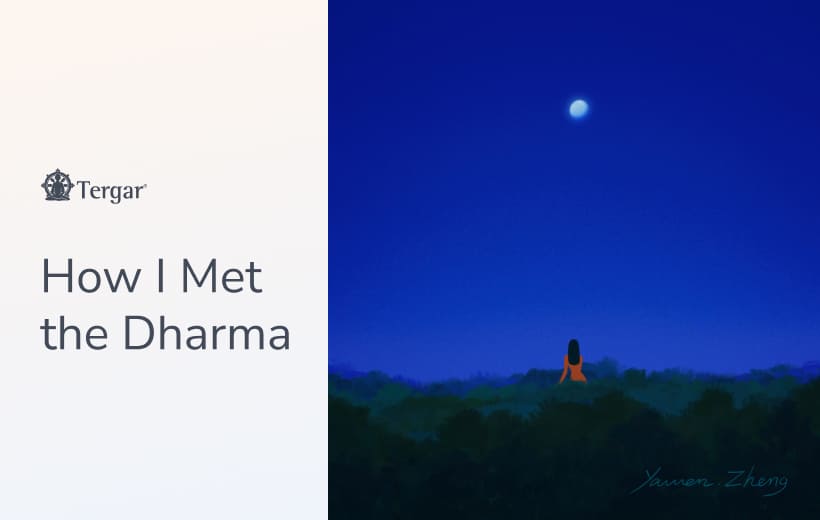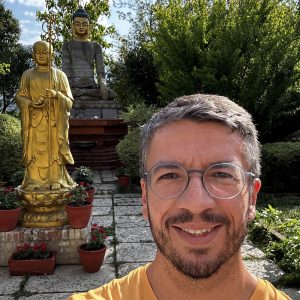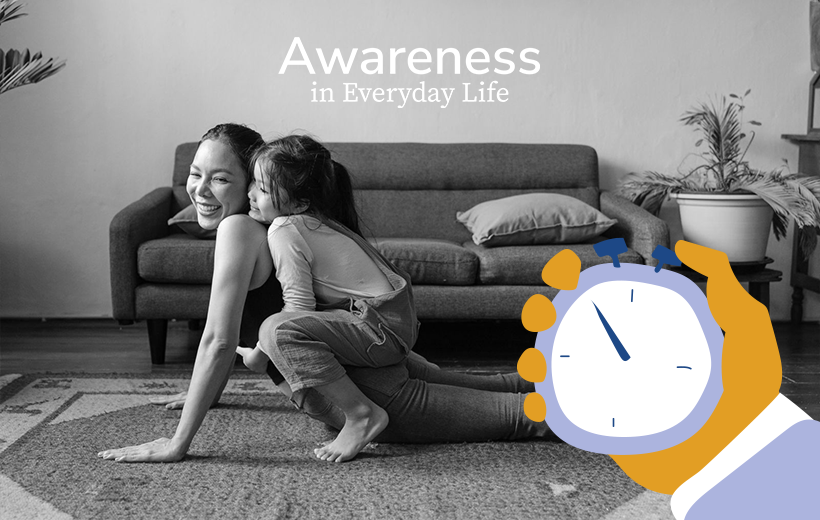“The Path Pointed Inward, Not Outward”
By Paulo Carvalho • 3 min read

I WAS BORN INTO A HUMBLE FAMILY of immigrants from northeastern Brazil, seeking a better life in the south. My parents, despite lacking formal education, were unyielding when it came to schooling. To them, financial success — and consequently, happiness — depended on having a good profession. From an early age, I carried this responsibility as a burden.
My childhood was marked by rigidity. I had to be the perfect boy, always getting things right. The Christian church we attended added more weight: a watchful God did not tolerate mistakes, and divine punishment always seemed to be lurking. Despite this, I lived up to their expectations. I excelled academically, entered a public medical school, and when I received my first paycheck, I thought, “Finally, I made it. No more scarcity.”
But something still didn’t feel right. I didn’t yet know the word dukkha, but I was already feeling its effects. In my early years as a doctor, material satisfaction arrived: the dream car, fine dining, modern gadgets. Yet my routine was exhausting. Between on-call shifts and regular hours as an occupational physician, I worked more than 60 hours a week. The pursuit of perfection followed me like a shadow. I wanted to control everything and everyone, and it consumed me. My body began to show the toll: insomnia, gastritis, persistent pain in my shoulders and lower back. Even my marriage began to fall apart, making it clear that money couldn’t buy happiness.
In the midst of this crisis, I began a desperate search for relief. I underwent psychotherapy, dove into neuro-linguistic programming (NLP), hypnosis, family constellations, and devoured self-help books. My curiosity and need to understand the mind led me, in 2013, to give a lecture on mental health and well-being to workers. At that time, I believed consistency and high performance were the keys to a fulfilling life.
Then, while preparing for that lecture, I came across an interview that changed everything: “What the Happiest Man in the World Says About the Secret to Happiness.” Matthieu Ricard spoke of something revolutionary to me: happiness didn’t depend on controlling the world or solving all problems but on how we relate to situations. It was possible to be happy even in adversity. His words shattered the glass of my productivity- and meritocracy-focused mindset. I had to learn more.
“With his guidance, I realized it was possible to interrupt the relentless effort to adjust and the continuous doing that had always defined my life. It was okay to be who I was.” — Paulo Carvalho
In 2014, I started meditating. I had an intuition that this could be transformative. But, true to my perfectionist habits, I approached the practice as a task, evaluating each session with harsh self-criticism. If I didn’t achieve the expected state of peace, I became frustrated. I was still trapped in the cycle of trying to fix everything, including myself.
Two years later, I traveled to São Paulo to meet a teacher who had just completed a four-year retreat, walking through remote areas without a fixed shelter. I learned that he had participated in the same scientific study that introduced Matthieu Ricard to the world, but what struck me the most was his presence. His humor, teaching style, and simplicity were disarming.
When I saw Mingyur Rinpoche teach, for the first time, I felt completely comfortable and natural. I no longer judged myself as wrong. It was as if I were forgiven for being who I am, for experiencing what I have. He conveyed a genuine sense that “everything is okay,” and that deeply comforted me. He encouraged me to be present in my own skin, without the need to escape or hide. I didn’t need to seek a different experience. What I am is already wonderful. With his guidance, I realized it was possible to interrupt the relentless effort to adjust and the continuous doing that had always defined my life. It was okay to be who I was.
That realization was a balm for a mind tired of striving to improve. Words cannot fully capture the depth of that moment. It felt as if I finally had permission to relax. I felt safe, free, and at peace. My search ended there and, at the same time, had just begun.
I found a path. It didn’t point outward but inward.
January 2025

Learn meditation under the skillful guidance of world-renowned teacher Yongey Mingyur Rinpoche at your own pace.


Maura Peglar reflects on her lifelong spiritual journey, from childhood curiosity to a deep engagement with Tibetan Buddhism, guided by various teachers and personal experiences of loss and transformation.

What is the best meditation that can be done amidst hungry kids, barking dog, and busy boardrooms? Read more from Chris Pacheco, father of four young boys.

“Each time I come back to Joy of Living, I get something totally new out of it. I also appreciate it’s a very sequential path as well. Each piece flows into the other very elegantly. It’s a work of art really.”
If you enjoyed reading our articles, please join our mailing list and we’ll send you our news and latest pieces.